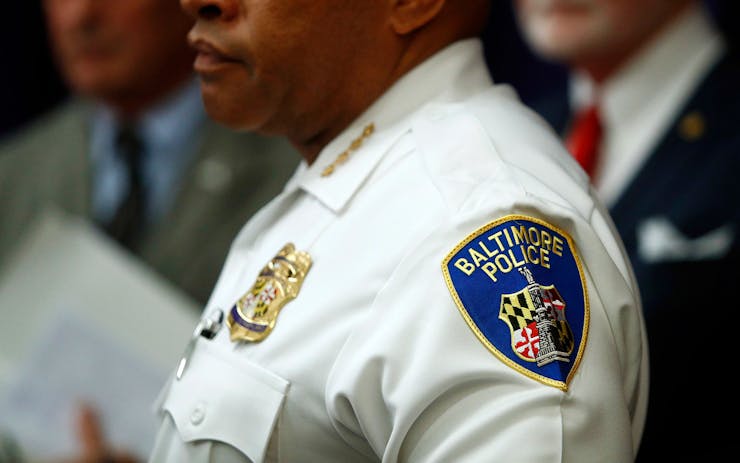The state’s attorney in Baltimore will no longer prosecute any marijuana possession cases, regardless of the quantity of the drug or an individual’s prior criminal record, authorities announced Tuesday.
Marilyn Mosby, the city’s top prosecutor, said cannabis possession cases have no public safety value, erode public trust in law enforcement, and intensify existing racial disparities in the criminal justice system since arrests disproportionately occur in communities of color.
Roughly 96% of the people arrested by Baltimore police for cannabis possession from 2015 through 2017 were black.
Mosby’s office will still go after dealers and traffickers by prosecuting marijuana distribution cases. But officials said the money and energy prosecuting any type of simple possession case could now be redirected to address more significant crimes in a U.S. city grappling with chronically high violent crime rates and no shortage of dangerous drug syndicates.
“No one who is serious about public safety can honestly say that spending resources to jail people for marijuana use is a smart way to use our limited time and money,” she said.
Meanwhile, her office will seek to vacate some 5,000 marijuana possession convictions stretching back to 2011. She described jailing people for marijuana possession as a “vast and ongoing moral failure” even as the drug remains illegal in the state.
“Law enforcement pays a steep cost in the form of public trust when we spend resources on things like marijuana and simultaneously fail to solve and successfully prosecute homicides,” she said.
Mosby’s decision puts her at odds with the city’s police force.
In a brief Tuesday statement, Baltimore’s acting Police Commissioner Gary Tuggle stressed that officers “will continue to make arrests for illegal marijuana possession unless and until the state legislature changes the law regarding marijuana possession.”
When asked what she would do if police presented her with a cannabis possession arrest in coming days, Mosby didn’t mince words: “We will release them without charges.”
It’s been roughly five years since Maryland’s governor signed 2014 legislation that decriminalized the possession of small amounts of cannabis. The law was designed to improve public safety by freeing police officers to focus on more serious threats.
Shop highly rated dispensaries near you
Showing you dispensaries nearYet Dana Vickers Shelley, executive director of the ACLU of Maryland, said black citizens are consistently arrested for marijuana possession at higher rates than white citizens in every state county even though their rates of usage are similar. She urged the Baltimore Police Department to “take heed of this policy for change.”
In recent weeks, the online publication Baltimore Fishbowl collaborated with data researchers to examine misdemeanor possession charges for 2015, 2016, and 2017. It found that roughly 96 percent of the 1,448 adults and 66 juveniles arrested by Baltimore police for cannabis possession during those years were black.
Mosby’s announcement was met with enthusiasm by advocates of harm reduction strategies such as decriminalizing drugs and syringe access.
“Our hope now is that she goes beyond this and supports legislation to decriminalize all drug possession so we can pursue a public health approach to drug use and end the wasteful and unjust war on drugs,” said Tricia Christensen, legislative advocacy coordinator with Baltimore Harm Reduction Coalition.
For years, prosecutors’ offices across the country have been reconsidering cannabis prosecution policies and their impact on reducing crime amid a national shift in attitudes about marijuana.
Olivia Naugle, legislative director for the Marijuana Policy Project advocacy group, applauded the Baltimore decision.
“Decades of arresting and prosecuting people for marijuana possession did not make Baltimore any safer, and it had a dramatically disproportionate impact on communities of color,” she said. “Countless individuals have been branded with convictions and subjected to life-altering collateral consequences that cause them more harm than marijuana ever could. Unfortunately, this has continued to be the case in Baltimore City even after decriminalization in 2014.”
Naugle also encouraged the rest of the state to follow Mosby’s lead. “The General Assembly can and should put a stop to marijuana possession arrests and their harmful fallout by ending marijuana prohibition once and for all,” she said. “The sooner lawmakers act, the sooner these needless possession arrests will come to an end, not just in Baltimore City but across the state.”
The Associated Press contributed to this report. This story has been updated.




